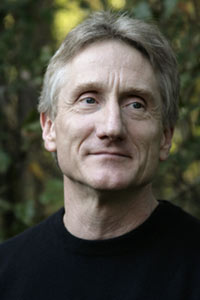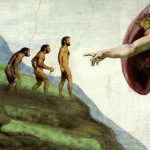Charles Darwin’s On The Origin of Species was published in 1859, and had an immediate and dramatic effect on religious narratives. Traditional religions were forced to adopt an evolutionary worldview, or to go on the offensive; whereas New Religious Movements like Wicca or New Age adopted an environmental concern as a central part of their belief. And possibly, for individuals and groups committed to protect, preserve or sacralise nature, environmentalism has become a kind of religion in itself.

 Bron Taylor is Professor of Religion and Nature at the University of Florida. He is also a Carson Fellow at the Rachel Carson Center at Ludwig-Maximilians-Universität München. His central scholarly interest and personal passion is the conservation of the earth’s biological diversity and how human culture might evolve rapidly enough to arrest and reverse today’s intensifying environmental and social crises. He edits the Journal for the Study of Religion, Nature and Culture, as well as the two-volume Encyclopedia of Religion and Nature. His latest book is Dark Green Religion: Nature Spirituality and the Planetary Future (2009) – the first chapter can be read on his website, along with a wealth of other supplimentary material including a piece on Bron’s thoughts on the movie Avatar, as discussed in the podcast
Bron Taylor is Professor of Religion and Nature at the University of Florida. He is also a Carson Fellow at the Rachel Carson Center at Ludwig-Maximilians-Universität München. His central scholarly interest and personal passion is the conservation of the earth’s biological diversity and how human culture might evolve rapidly enough to arrest and reverse today’s intensifying environmental and social crises. He edits the Journal for the Study of Religion, Nature and Culture, as well as the two-volume Encyclopedia of Religion and Nature. His latest book is Dark Green Religion: Nature Spirituality and the Planetary Future (2009) – the first chapter can be read on his website, along with a wealth of other supplimentary material including a piece on Bron’s thoughts on the movie Avatar, as discussed in the podcast











